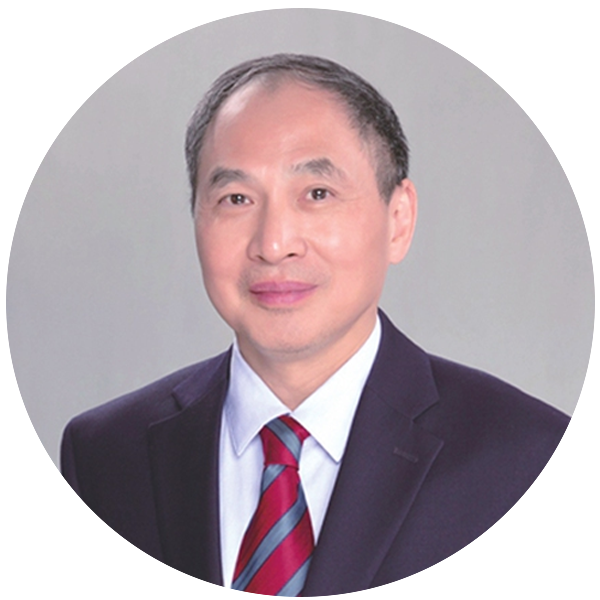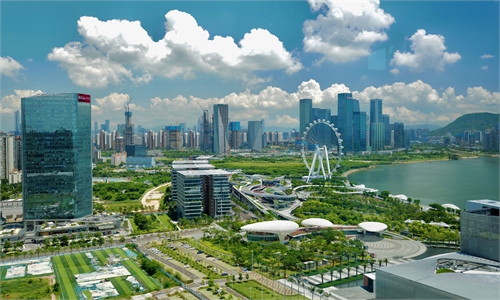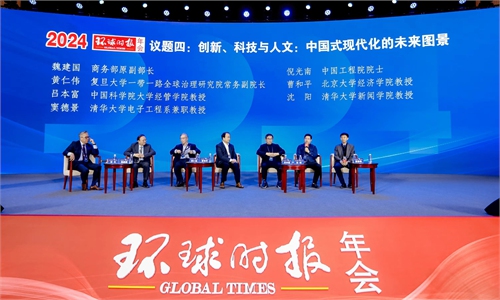Chinese modernization offers opportunities

Illustration: Xia Qing/GT
The report to the 20th National Congress of the Communist Party of China (CPC) clearly states: "From this day forward, the central task of the CPC will be to lead the Chinese people of all ethnic groups in a concerted effort to realize the Second Centenary Goal of building China into a great modern socialist country in all respects and to advance the rejuvenation of the Chinese nation on all fronts through a Chinese path to modernization." In this context, the 2023 Central Economic Work Conference further deepened the understanding of the laws governing economic work in the new era, emphasizing that "promoting Chinese modernization must be upheld as the foremost politics," which is of great significance.
Chinese modernization is one of a huge population, of common prosperity for all, of material and cultural-ethical advancement, of harmony between humanity and nature, and of peaceful development. It is a high-standard definition of modernization that not only has milestone significance for China's development but also provides a strong impetus for global modernization and offers a new choice for countries and peoples in the world that hope to accelerate development while maintaining their independence.
Promoting Chinese modernization as the "foremost politics" is determined by the nature of the CPC. This is a manifestation of the CPC's clear political stance which once again clarifies the greatest mission of mission-oriented political parties in the new era: to achieve the goal of becoming stronger through the advancement of Chinese modernization. At the same time, "foremost politics" also puts forward higher requirements for all aspects. First, all governmental departments across the country must form the greatest synergy and solidly promote the building of Chinese modernization; second, the whole society must form the greatest consensus and deepen reform and opening-up across the board, injecting strong momentum into the advancement of Chinese modernization.
Promoting Chinese modernization as the "foremost politics" requires a full understanding of the changes in the domestic and international environment, as well as the difficulties and challenges faced.
From an international perspective, we face four major challenges. First, there have been significant changes in the world pattern and situation, with the international order showing a trend of "fragmentation." Second, protectionism prevails in international trade, and the "decoupling" of the US and some Western countries from China will not stop. Third, a new round of "cognitive warfare" has begun in the economic sphere, as the expressions of "peak China," "China collapse" and "China uninvestable" still linger. Fourth, external forces are constantly creating conflicts around the Taiwan question and the South China Sea issue, attempting to once again obstruct China's modernization process.
To promote Chinese modernization as the "foremost politics," it is necessary to plan further major initiatives to comprehensively deepen reform to continue injecting strong impetus into promoting high-quality development and advancing Chinese modernization. We must adhere to high-quality development as the fundamental requirement of the new era, firmly grasp its priority task, and promote consensus-building and resource organization. The CPC needs to fulfill its core role of exercising overall leadership and coordinating the efforts of all sides. Moreover, we need to urge efforts to build a unified national market through regional economic integration and deepen rural land system reform, combining the promotion of a new type of urbanization and the comprehensive promotion of rural vitalization.
In particular, expanding high-level opening-up is necessary to promote Chinese modernization as the "foremost politics." First, while safeguarding national core interests, China should fulfill its responsibilities as a major country and provide a Chinese solution for world peace and development. Second, we must steadily expand institutional opening-up in terms of rules, regulations, management and standards, actively participate in the formulation of international rules, and strive for institutional power in global economic governance. Third, we should promote China's modernization through precise, unilateral opening-up. Fourth, we should seize the new opportunities brought by the Regional Comprehensive Economic Partnership Agreement (RCEP) and explore the construction of a China-ASEAN common market based on it. Fifth, we should encourage Chinese companies to extend their supply chains and industrial chains, cultivate multinational corporations, and promote domestic-international dual circulation.
The author is a professor at the Chinese University of Hong Kong, Shenzhen and president of The Institute for International Affairs, Qianhai. opinion@globaltimes.com.cn




